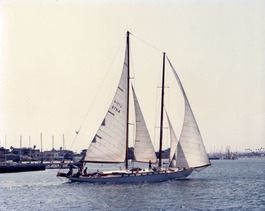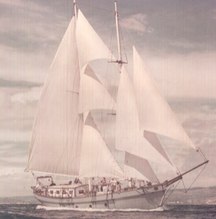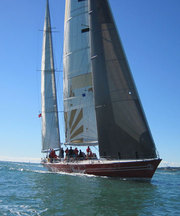Panama Needs Sail Training
What is Sail Training?
Sail training requires participants to confront many demanding challenges, both physical and emotional. It is an activity that inspires self-confidence and the acceptance of personal responsibility. It promotes an acceptance of others whatever their social or cultural backgrounds, and develops a willingness to take controlled risks. For most who undertake sail training on Tall Ships it is a positive life-changing experience.
Most sail training vessels are owned and operated by charities or foundations, schools or universities, governments or other institutions. They generally seek to reflect the breadth of social backgrounds in society at large in the crews they attract. Many have funding programmes to subsidise the participation of those who could otherwise not afford it. Some also run special programmes for those with physical, mental or social difficulties.
Sail training takes place all over the world and in many different types of vessel. Some of the most effective programmes take place on small vessels with the benefit and intimacy of working on board within a small team. Different challenges confront those who undertake sail training on the huge and glamorous square-rigged ships, with much demanding work aloft as well as on deck.
Sail training is a growing adventure activity for the young and old everywhere, with a record of considerable success in developing men and women of character and ability for the challenges of life.
Sail training is an adventure activity for people of all ages and abilities. It includes instruction in all aspects of sailing but its purpose goes far, far beyond this. Sail training uses the experience of being at sea principally as a means to help people learn about themselves, discover hidden strengths and talents and understand the value of working as a team. In some programmes today it forms the setting for much wider aspects of education at sea.
Most sail training vessels are owned and operated by charities or foundations, schools or universities, governments or other institutions. They generally seek to reflect the breadth of social backgrounds in society at large in the crews they attract. Many have funding programmes to subsidise the participation of those who could otherwise not afford it. Some also run special programmes for those with physical, mental or social difficulties.
Sail training takes place all over the world and in many different types of vessel. Some of the most effective programmes take place on small vessels with the benefit and intimacy of working on board within a small team. Different challenges confront those who undertake sail training on the huge and glamorous square-rigged ships, with much demanding work aloft as well as on deck.
Sail training is a growing adventure activity for the young and old everywhere, with a record of considerable success in developing men and women of character and ability for the challenges of life.
Sail training is an adventure activity for people of all ages and abilities. It includes instruction in all aspects of sailing but its purpose goes far, far beyond this. Sail training uses the experience of being at sea principally as a means to help people learn about themselves, discover hidden strengths and talents and understand the value of working as a team. In some programmes today it forms the setting for much wider aspects of education at sea.
OUR AIM
- Panama's naval and merchant marine cadets achieve a high standard of practical sea experience and competence through Sail Training that earns them a high reputation internationally.
- Sea training programs that reach all boat users from the fisherman in a small panga up to motor launches.
- A program of licensing and training on a par with the Canadian BOATSmart Program run by Transport Canada.
Support Us Now!
This community program needs YOUR SUPPORT!
Corporate Sponsors, Volunteers, Sailing Instructors, Administrators are all needed to build an organisation that improves the competence, confidence and quality of the young Panamanians now entering the work force.
Funds are needed to equip the vessels and provide bursaries so all young people between 15 and 25 years can benefit from this program.
Donations of equipment and assistance with catering the schooners will be welcomed.
Corporate Sponsors, Volunteers, Sailing Instructors, Administrators are all needed to build an organisation that improves the competence, confidence and quality of the young Panamanians now entering the work force.
Funds are needed to equip the vessels and provide bursaries so all young people between 15 and 25 years can benefit from this program.
Donations of equipment and assistance with catering the schooners will be welcomed.
The Sail Training Opportunity
Panamá now has two Tall Ships available - Sea Phoenix and Valkyrien - both Classic wooden boats being rebuilt by Panamanian shipwrights. These will be available to give Panama its chance to have its own Sail Training vessels for its Navy, Merchant Marine Cadets and Trainees on the Canal - together with all Panama's young people from all level's of society.
Once fitted to International standards, these two classic schooners will take trainees around the Bay of Panama - competing against each other from point to point.
Once fitted to International standards, these two classic schooners will take trainees around the Bay of Panama - competing against each other from point to point.
Check out the ASTA Programme for Running a Sail Training Organisation here
Sail Training Documentation
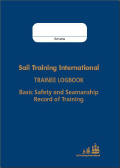
Logbook
This Logbook has been edited by Sail Training International to record the 32-documented knowledge / basic skills that every trainee must acquire.
Basically it is a document which certifies evaluative core competencies related to safety and internationally validated by the ITS. Those responsible for the formation of each organization and /or sailing school must complete the sections in terms of the skills displayed by the trainee.
This Logbook has been edited by Sail Training International to record the 32-documented knowledge / basic skills that every trainee must acquire.
Basically it is a document which certifies evaluative core competencies related to safety and internationally validated by the ITS. Those responsible for the formation of each organization and /or sailing school must complete the sections in terms of the skills displayed by the trainee.
Racing Rules and Regulations
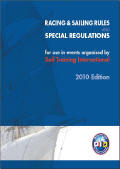
RACING & SAILING RULES
AND
SPECIAL REGULATIONS
for use in events organised by Sail Training International
2010 Edition
AND
SPECIAL REGULATIONS
for use in events organised by Sail Training International
2010 Edition
Auto-evaluation programme

The objectives of this program is to create an unprecedented system of self-evaluation that allows Sail Training operators to identify strengths and weaknesses of their program.
To promote the personal growth of youth through teamwork in an authentic experience (navigation).
To promote the personal growth of youth through teamwork in an authentic experience (navigation).
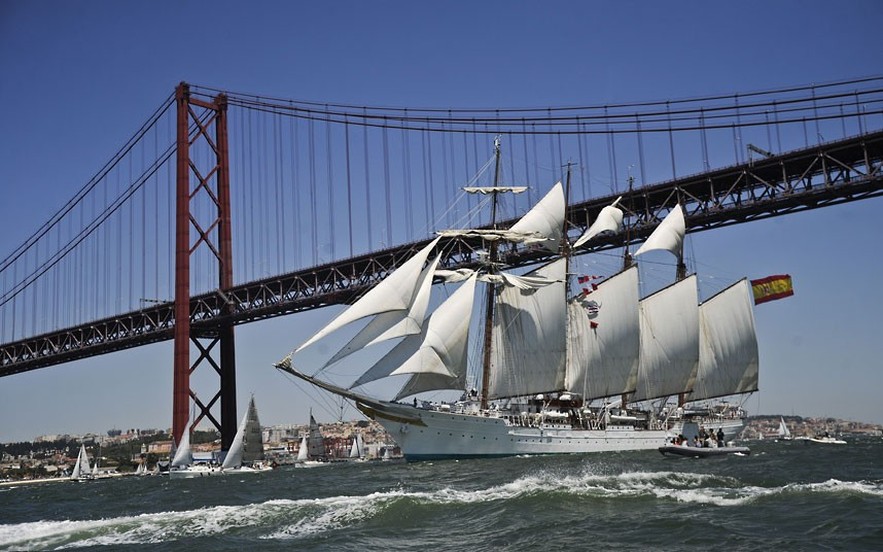
The Juan Sebastian De Elcano sails under the 25 de Abril Bridge on the Tejo River in Lisbon, during the Tall Ships Race 2012
